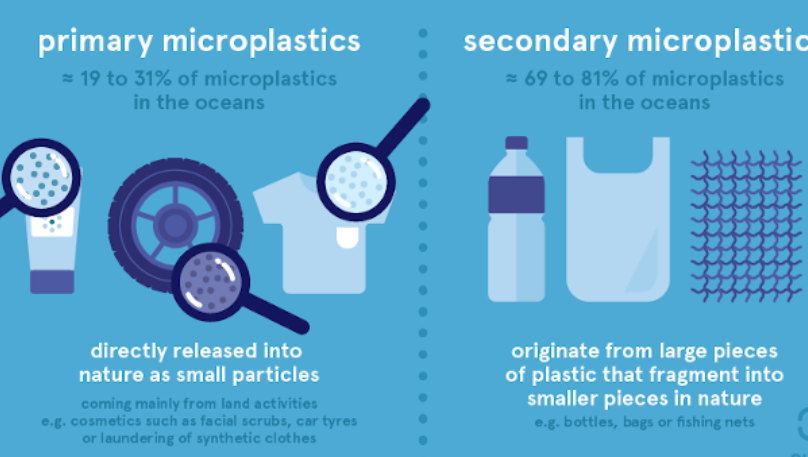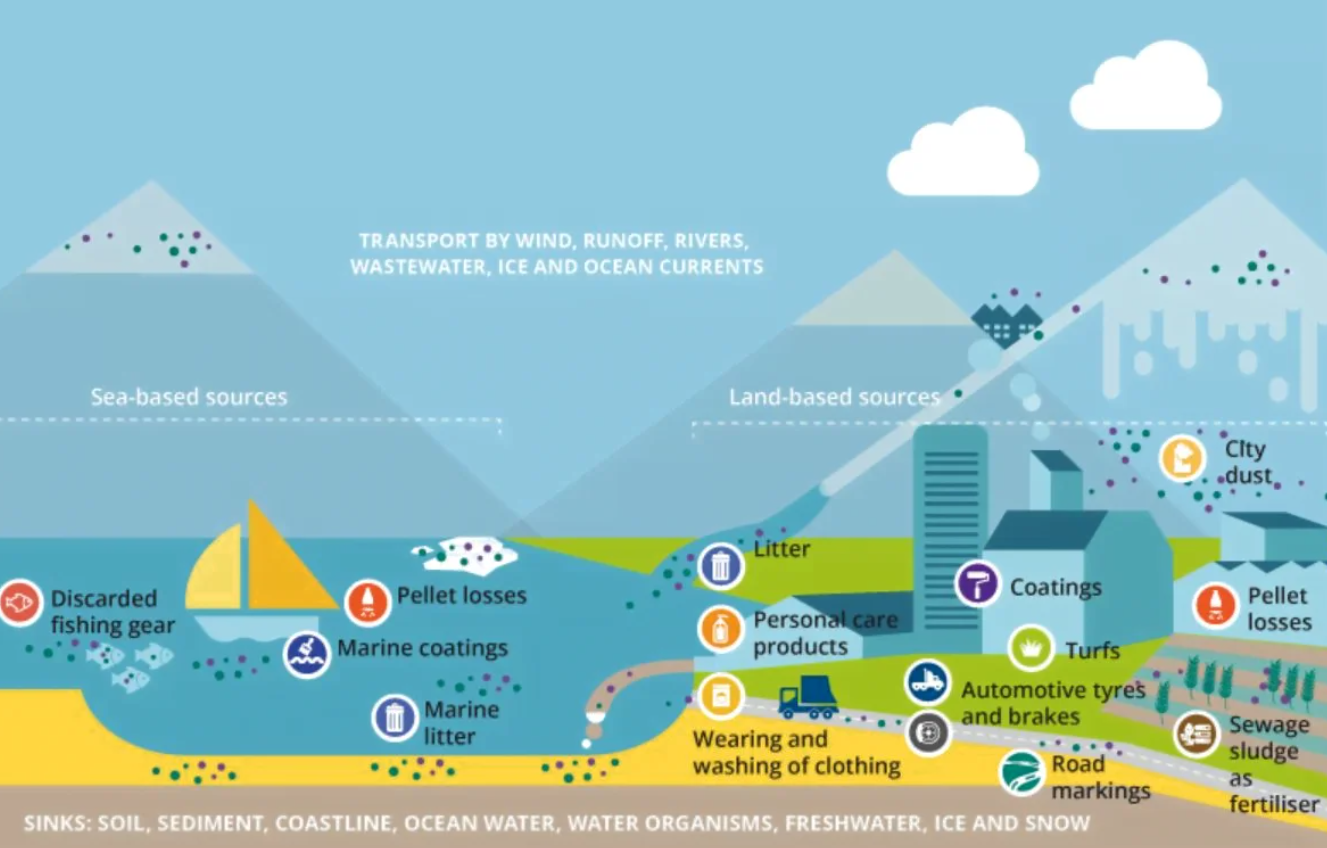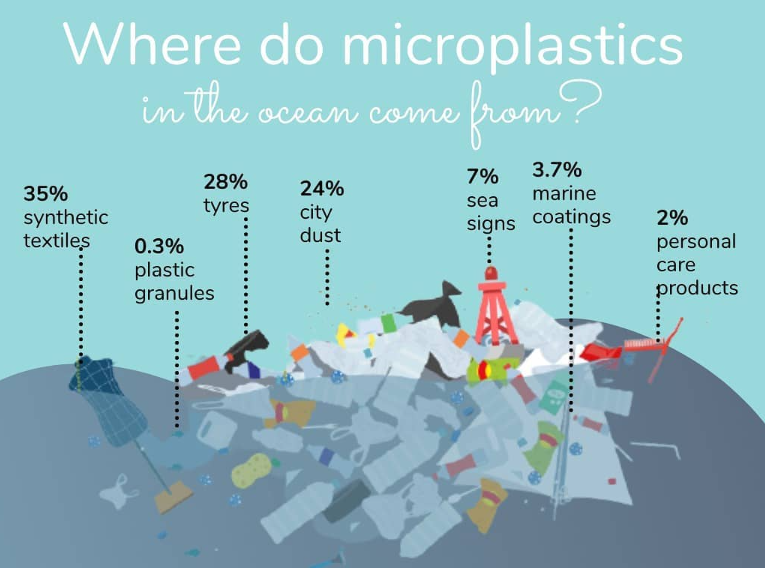High amount of microplastics in Indian personal care products
| Topic: GS2 – Social Justice – Health |
(Source – The Hindu, International Edition – Page No. – 7)
| Context |
| ● Recent research reveals that personal care products in India contain harmful microplastics, including polyethylene and polycaprolactone.
● Despite claims of being “eco-friendly” or “natural,” many products contribute to plastic pollution, posing significant environmental and health risks. ● Improved policies are needed to manage and reduce microplastic contamination effectively. |


Definition of Microplastics
- Microplastics are small plastic particles under 5 millimetres in size. They include microbeads, which have a diameter under 5 millimetres, and are often used in personal care products like face washes and scrubs.
Increasing Uses of Microplastics

- Personal Care Products: Microplastics, such as polyethylene (PE) and polypropylene, are commonly used in face washes, scrubs, and shower gels as exfoliating agents and to enhance ingredient delivery.
- Pharmaceuticals: Bioplastics like polycaprolactone are utilised as drug carriers due to their anti-ageing and antibacterial properties.
- Consumer Goods: Microplastics are found in various products including cleaning agents and cosmetics, often under labels like “natural” or “eco-friendly,” which can be misleading.
Adverse Impacts of Microplastics
- Environmental Pollution: Microplastics contaminate water bodies and soil, adversely affecting both aquatic and terrestrial ecosystems.
- Impact on Wildlife: Marine organisms ingest microplastics, leading to disruptions in food chains and harm to wildlife.
- Health Risks: Microplastics are found in human tissues, such as the brain, blood, lungs, and digestive system, raising concerns about potential health impacts.
- Bioaccumulation: Microplastics can accumulate in human and animal bodies, leading to unknown long-term health effects.
- Greenwashing: Products labelled as “organic” or “eco-friendly” may still contain microplastics, misleading consumers about their environmental impact.
- Complicated Efforts: Greenwashing undermines efforts to reduce plastic pollution and complicates the pursuit of product transparency and environmental responsibility.
| Practice Question: Discuss the environmental and health impacts of microplastics in personal care products. How can policies be improved to address microplastic pollution effectively in India? (250 Words /15 marks) |

